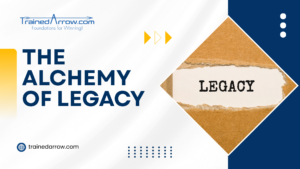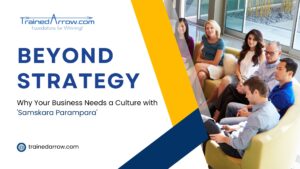
The Alchemy of Legacy … the soul-print we can leave in a fast-moving world!
In earlier times, life was simple. The past used to be with us. Families passed down not just names, but stories, values, and wisdom. The
![]()
Thrifty Three Questions!
Are you Saving, Spending or Splurging?
Never mind, you now have simple thrifty three questions that can help!
America’s best-known aphorism about thrift, as Ben Franklin said “a penny saved is a penny earned.” But American economy, by little choice now, and Americans, by their habits, have been caught up in a helpless and vicious out-of-control spending spiral, if not splurging, to move forward with an economy that poses a great threat to survival if we simply took to saving.
But there are ways that can help us to be prudent in both spending and saving. To examine our own personality of saving, we need to pose three questions – as to how we save, spend and splurge the money that is not yet ours most of the time, the debt! Do we always look for ways to save money? aware of how we’re spending? OR are simply a ‘spendthrift’?
Ironically, most people often tend to compare (confuse?) spending with being well-to-do, rich or even being magnanimous (perhaps a ‘giving personality’). All these are our own self-images driven by our own underlying emotions and attitudes. Our spending varies by instinct, temperament and inclination, and we don’t realize that we usually fail to watch ourselves who we are and how we spend?
Let me tell you a small personal experiment that helped me a great deal with such dilemma. When I moved to the US in ’99, my earnings were small, albeit sufficient to pay for an honorable living. Yet at times my wife and I would run into situations where we had to say ‘no’ to our young daughters for buying playthings and those eye-catching products when shopping at super markets and malls. So I have developed a simple set of three questions that gave them the freedom to make their own decision to buy or not to buy – they were encouraged to ask themselves a few simple questions before filling the shopping cart with desired items.
Ask these THREE BASIC QUESTIONS before you buy anything that is not so mundane:
Do we need it? Is it worth it? Can we avoid it?
This has had a permanent effect on their thought process when making a proposed buying decision. These principles have also helped our family as well. This set of THRIFTY THREE questions always did a quick and fantastic evaluation of the need to buy things that were often attractive, yet not really needed.
How to apply these questions? Put these questions in serial to yourself. So, first ask if you really need the item in question for sure, and your answer is a big YES. Then move ahead to the next questions, else drop the idea of buying if you can. Then, in the second question, evaluate if the price is worth the value you would derive from the product. This filters those frills arising out of ‘sale’ prices or ‘deals’ that perhaps tempted you to consider buying. If the item passes this test, then subject your decision to yet another but last question “Can I avoid buying it?” This is intended to safeguard you from spending for something that you don’t need immediately but instead, can wait.
These queries liberate us from our regular buying or non-buying inclinations and bring prudence to buying decisions. When we practice this, we guide our thoughts and actions by clarity of the purpose and what we need, and not by spontaneous and emotional drivers.
These are time-tested; fairly simple yet powerful inquiries to avoid wasteful spending, in other words an honorable way to being thrifty. Most importantly, use of these questions constantly guards against living beyond our means while still allowing for happy shopping!

In earlier times, life was simple. The past used to be with us. Families passed down not just names, but stories, values, and wisdom. The
![]()

Okay, listen up. We’re all chasing the next big tech flex and the fastest quarterly win. But what happens when the founder retires, or the
![]()

Can you? Read this short story: A senior leader who once worked closely with the Reliance Group of India shared this story with me –
![]()
We are passionate about people development and transformation. Our courses are designed for: College Graduates, Corporate Employees, and Entrepreneurs. Interested?
trainedarrow@samprad.net
+1-609-658-3053